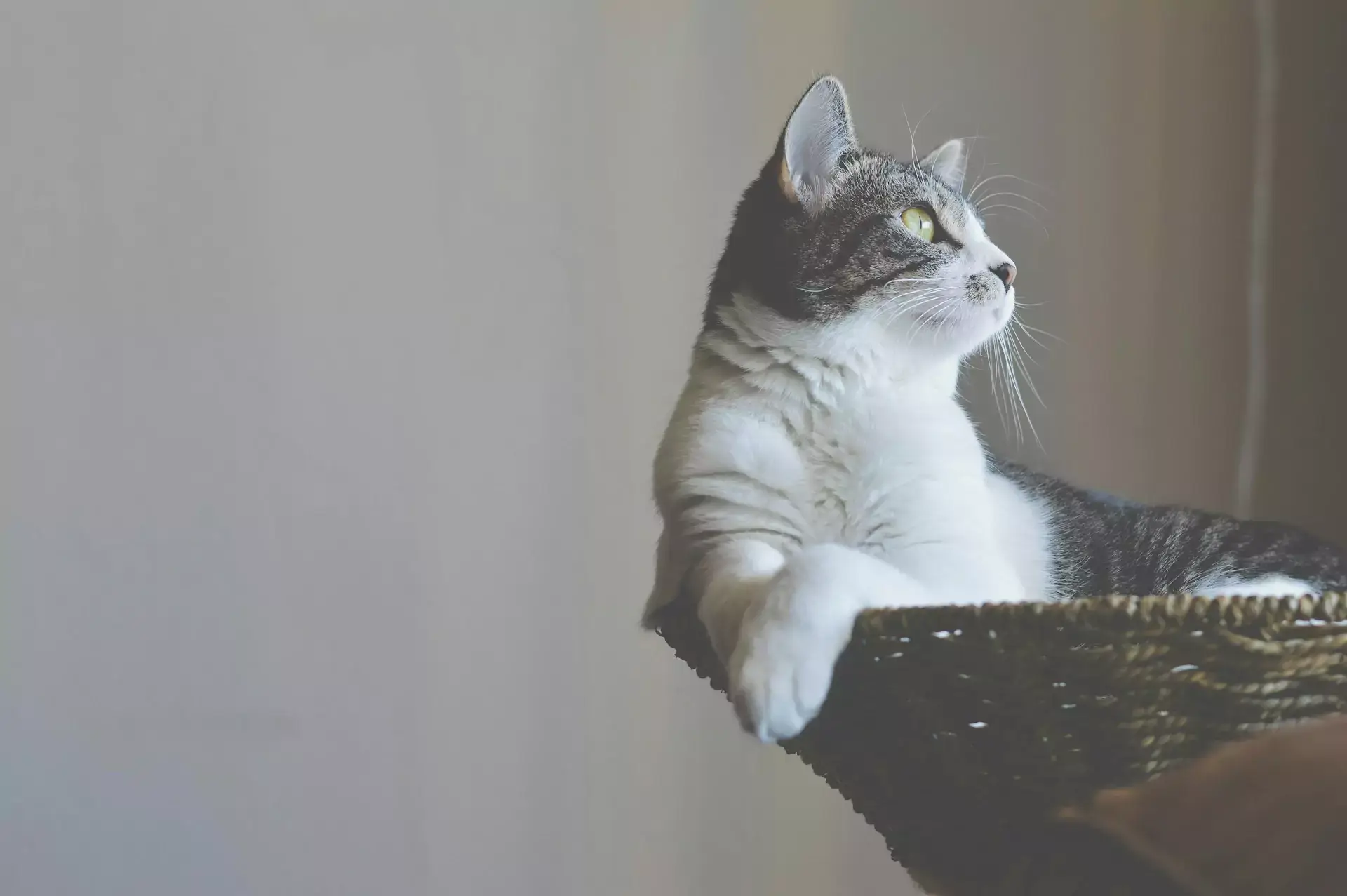Stressed Kitties: Helping Fluffy Cope
It’s easy to make fun of how cold and aloof cats are. After all, Fluffy does like to bite for pleasure, and she has a history of leaving dead animals as a thank you gift for all of the food, toys, treats, and lap space we provide. However, cats are extremely emotional little furballs. They, like people, can experience loneliness, grief, fear, worry, and general tension. In this story, a local vet explains stress in cats.
Why Do Cats Get Stressed?
Fluffy can grow anxious over a wide range of issues. Moving, bringing a new pet into the home, and changing ownership are all stressful events for cats. Another major source of concern is medical difficulties. Fluffy may also be afraid because of previous hurts or experiences. The list doesn’t stop there, though. Loud noises can frighten our feline friends. Conflicts with other pets can also be major issues. Boredom and loneliness can both be detrimental to your kitty companion.
If you are unsure why your pet is stressed, consult your Exeter, CA veterinarian.
How Do I Know if My Cat Is Stressed?
Although Fluffy is unable to communicate her feelings to you, you can still sense her overall attitude and state of mind if you pay attention to her behavior and body language.
Here are a few signs of stress in kitties:
- Hiding
- Not wanting to be touched/petted
- Litterbox issues
- Overgrooming (May cause fur loss/skin irritation.)
- Eating non-food items.
- Diarrhea
- Vomiting
- Panting
- Unusual or excessive meowing
- Clinginess
- Pacing
- Nervousness
- Aggression
- Spraying
- Weight Loss Or Gain
- Lack Of Appetite
Fluffy’s posture and body language can also be informative. Anxious kittens frequently have dilated pupils. They may lick their noses, press their ears flat on their head, or pull their whiskers back. Their tails may droop or be tucked tight to their bodies. Fluffy may stoop or hunch, and may just seem stiff and rigid, rather than draping herself over the back of the couch like a joyful, calm cat would. She probably won’t lay on her back either, which would show her belly. That furry belly is your pet’s most vulnerable area, so she won’t show it unless she feels safe.
It’s critical to recognize that many of these symptoms might also be indicative of illness. Have Fluffy inspected by her veterinarian to ensure there isn’t a medical problem to blame.
How Do I Calm a Stressed-Out Cat?
Before you can make Fluffy feel more at peace, you have to figure out the source of your cat’s fear and address the issue at the root. You may need to take a somewhat different approach with a timid rescue cat that is just beginning to trust than you would with a feline who is afraid of your dog.
You might need to take extra measures if you have other pets and you know or think that there is conflict between them. One thing that is crucial is making sure that there are enough supplies for all of your pets. Fluffy should not have to compete with her housemates for food, water, toys, or litterbox space. For more information, speak with your veterinarian.
How Can I Make My Stressed Cat Feel More At Home?
First and foremost, ensure that your kitty receives excellent care. A good kitty-care regimen includes good food, fresh water, a clean litterbox, and frequent veterinary visits, as well as plenty of snuggles and playtime.
Aside from that, making your home pleasant and entertaining for Fluffy can go a long way. You’ll need to create an environment that will help your worried pet feel safe and comfortable. Fortunately, it’s simple to transform your home into a kitty luxury palace.
Napping Spots
Give your pet plenty of comfortable napping locations. Kitties aren’t choosy about where they sleep. (Actually, that’s a bit of an understatement.) Fluffy is perfectly satisfied to curl up on a folded blanket or a pillow placed in a wicker basket.
Pawsitive Vibes
Anxiety can occasionally drive cats to misbehave. A scared cat, for example, might Urinate outside the litterbox. Punishing your furry friend may increase her anxiety and cause her to avoid the litterbox even more. Always strive for positive reinforcement and to make every interaction with you enjoyable and relaxing for Fluffy.
Calming Products
Things like pet-calming treats and sprays can also help here. Follow the package directions exactly, and ask your vet for advice and recommendations.
Medication
Some of our feline friends may benefit from medicine. Consult your veterinarian about your cat’s stress and behavior and request recommendations.
Routine
Cats have fewer activities on their daily agendas than dogs do. Fluffy won’t need to be walked, and she’ll manage her 43 daily naps on her own. However, it’s best if you can maintain a predictable mealtime and playtime schedule for her.
Hiding Places
Nervous kitties frequently seek refuge in safe, secure areas. Cats prefer confined settings because they feel most protected when nothing can sneak up on them. Fluffy may like an enclosed kitty condo or cat tower. You can also provide boxes and create little nooks and crannies for your pet beneath the bed or behind the couch. Your furball will probably also like items such as paper shopping bags with the handles removed and, of course, boxes. Small gestures, such as leaving a light and radio on while you are away, will also make your feline pal feel safe.
Scratching Posts
Scratching is a natural cat behavior. Fluffy is pretty much hardwired to care for her claws. After all, she is reliant on them for food, survival, and defense in the wild. Provide a tower, post, or board for your kitty companion to practice her nails on.
Window Seat
One simple but crucial thing you might do to keep that little motor running is to provide your feline friend with a window seat with a good view. Fluffy gets the chance to simultaneously do three of her favorite things: sunbathing, napping, and viewing the local wildlife.
Toys and Playtime
Both entertainment and action can reduce stress in cats. For one reason, chasing that elusive red dot or pouncing on that catnip mouse will allow Fluffy to expend any anxious energy she has. She’ll undoubtedly be calmer afterward. This is similar to going for a run to relieve stress after a rough day. Additionally, when you take the time to hold a string toy, your pet will understand that you are doing something for her. This will make her feel cherished and safe.
Playing might also help your furry friend develop confidence. Cats certainly need concentration to coordinate those complex run/pounce combinations. Mastering a complex pounce might boost your pet’s confidence, just as scoring a goal would for a child.
Purrs
Last but not least, ensure that your kitty companion feels loved. Just little things like giving her a forehead boop as you walk by, talking to her, giving her treats, and allowing her to curl up with you at night can make her feel appreciated.
Schedule an Appointment at Our Exeter, CA Pet Clinic
Do you need to schedule an appointment at our veterinary hospital? Contact us today at your Exeter, CA animal clinic!





!Social Icons